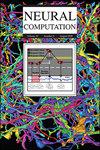通过熵和卷积神经网络学习 Korobov 函数
IF 2.7
4区 计算机科学
Q3 COMPUTER SCIENCE, ARTIFICIAL INTELLIGENCE
引用次数: 0
摘要
近年来,信息理论学习与深度学习的结合受到了广泛关注,因为它为应对大数据带来的挑战提供了一种前景广阔的方法。然而,对许多结构化深度学习模型至关重要的卷积结构的理论理解仍然不完整。为了部分弥补这一差距,这封信旨在利用学习理论对深度卷积神经网络(CNN)算法进行泛化分析。具体来说,我们重点研究了使用从信息论学习中得出的熵诱导损失函数进行鲁棒回归的问题。我们的分析表明,当目标函数位于 Korobov 空间时,基于深度 CNN 的鲁棒回归算法具有明确的收敛率。这项研究揭示了 CNN 的理论基础,并为了解其性能和局限性提供了一个框架。本文章由计算机程序翻译,如有差异,请以英文原文为准。
Learning Korobov Functions by Correntropy and Convolutional Neural Networks
Combining information-theoretic learning with deep learning has gained significant attention in recent years, as it offers a promising approach to tackle the challenges posed by big data. However, the theoretical understanding of convolutional structures, which are vital to many structured deep learning models, remains incomplete. To partially bridge this gap, this letter aims to develop generalization analysis for deep convolutional neural network (CNN) algorithms using learning theory. Specifically, we focus on investigating robust regression using correntropy-induced loss functions derived from information-theoretic learning. Our analysis demonstrates an explicit convergence rate for deep CNN-based robust regression algorithms when the target function resides in the Korobov space. This study sheds light on the theoretical underpinnings of CNNs and provides a framework for understanding their performance and limitations.
求助全文
通过发布文献求助,成功后即可免费获取论文全文。
去求助
来源期刊

Neural Computation
工程技术-计算机:人工智能
CiteScore
6.30
自引率
3.40%
发文量
83
审稿时长
3.0 months
期刊介绍:
Neural Computation is uniquely positioned at the crossroads between neuroscience and TMCS and welcomes the submission of original papers from all areas of TMCS, including: Advanced experimental design; Analysis of chemical sensor data; Connectomic reconstructions; Analysis of multielectrode and optical recordings; Genetic data for cell identity; Analysis of behavioral data; Multiscale models; Analysis of molecular mechanisms; Neuroinformatics; Analysis of brain imaging data; Neuromorphic engineering; Principles of neural coding, computation, circuit dynamics, and plasticity; Theories of brain function.
 求助内容:
求助内容: 应助结果提醒方式:
应助结果提醒方式:


